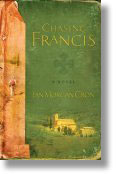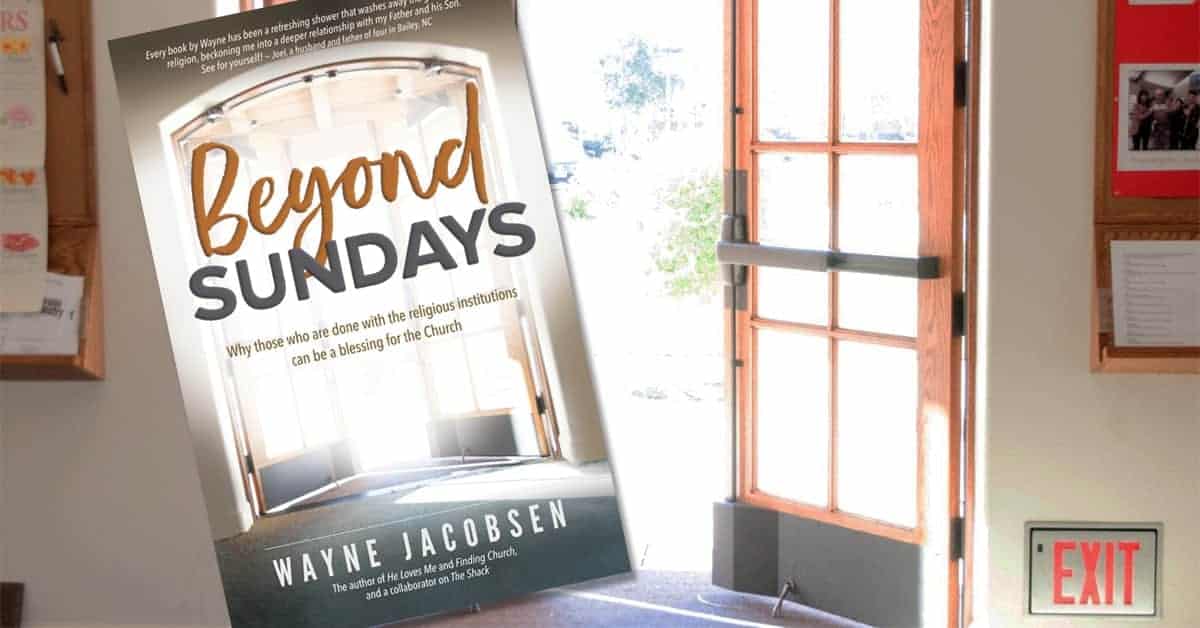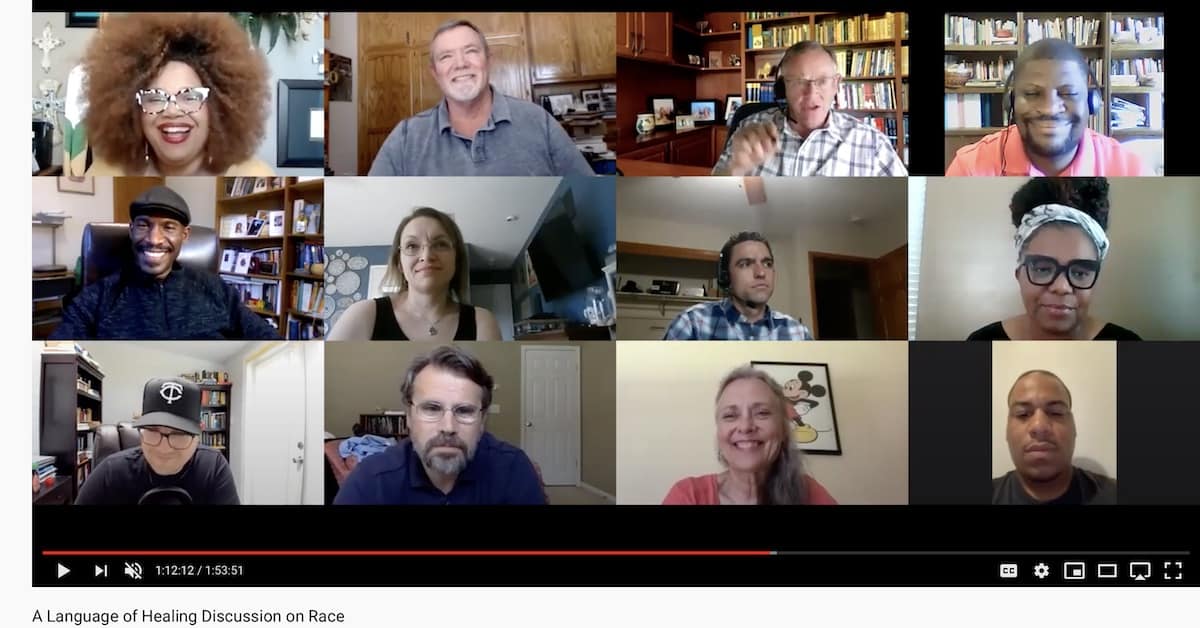 A couple of days ago, I quoted from Chasing Francis, book I’ve just finished reading. It came highly recommended to me, but honestly I found it to be a bit of a mixed bag. In the end, howeiver I was grateful to have read it. It encouraged my personal journey as well as helped me understand a bit more of the emergent conversation.
A couple of days ago, I quoted from Chasing Francis, book I’ve just finished reading. It came highly recommended to me, but honestly I found it to be a bit of a mixed bag. In the end, howeiver I was grateful to have read it. It encouraged my personal journey as well as helped me understand a bit more of the emergent conversation.
It is not truly a novel. It is the story of a fictitious pilgrimage by a disillusioned mega-church pastor who is forced into a leave of absence by a crisis of faith. He ends up in Italy with his uncle who is a Catholic priest who guides him on a process to rediscover his faith though the teachings, life and example of the person who became known as St. Francis of Assisi. Though the story does degenerate into preachiness at times, it is a creative way to tell the story of St. Francis in a way that readers today can engage. And St. Francis’ story and impact on the church of his day is a great read.
I found the first three quarters of this book to be engaging and a great encouragement to my own journey as he discards his institutional objectives for a clearer understanding of God’s work in the world. But I found the last quarter to be as disappointing as the first part was encouraging. But that doesn’t mean it wasn’t worth reading. Even the ending was enlightening as an example of the Christianity I don’t want to get caught in again. The uptake of the story is that the pastor’s crisis of faith is resolved, not in a newfound relationship with God but a new set of five priorities derived from his time in Italy. In the end he and those he influences are more enamored with chasing Francis than they are following Jesus. I doubt even Francis would have approved.
But it did help me understand what has bothered me about what is becoming increasingly known as the emergent church or the emergent movement. The publicity of this book identifies it with this movement and Brian McClaren has a quote on the cover declaring this part of that conversation. I say that because the ending of this book solidifies some of what has concerned me most about this movement.
I’m often asked what I think of the emergent church movement and in answering I’ve reminded people that I’ve had very little firsthand touch with it. Thus my conclusions have come from reading some of its authors and what others have said so that my conclusions can’t be construed as definitive. But I have said that I think the movement is asking better questions than many traditional congregations and in many cases has a better message that focuses on relationships with each other and a more relevant engagement with the world.
On the downside, however, they seem to be compressing that into the same institutional structures that will eventually subvert their message. They are still caught up in building, leadership and services. Also, I’ve not found that the ever-present Christ is an important part of the conversation. It is more a movement driven by principles and ideology that find identity in the movement and its leaders, rather than finding a deeper intimacy with the Father, Son and Spirit. Certainly God is referenced a lot, but it doesn’t seem to me to be the language of a growing relationship with him, but an exploration of ideas and practices that might be more relevant.
This difference is not small. If our journey isn’t leading us to a fuller engagement with Jesus and a more complete identity in him alone, then we just end up with another man-made movement that results from our efforts rather than his working. I don’t know if that’s where the emergent conversation is going, but if this book is any indication, building institutions off a new set of priorities isn’t going to get it done.
Will we ever learn that Jesus didn’t start anything like that nor encouraged his disciples to do so? He said he would build his church an framed that reality in the language of family, not the structures of a corporation. In the end, if the still-present and still-active Jesus is not at the center of the conversation and the goal of that conversation, we’re still missing the best this kingdom has to offer,








Wayne, I am fully with you when it comes to trying to work all this out by coming up with a better system. I’m open to being wrong about this but I just can’t see it happening. It seems history should have taught us by now that when we try to contain Life in Christ, within a system, there will come a point that the life of the Spirit will be replaced with rules instead of REAL LIFE. Systems strengthen and prop up ego. One thing I do see a bit different is it does seem there is an emphasis coming from some of these folks on the ever present experience of Christ. It does seem at times to get missed by many of them though. The thing that keeps me hopeful is some of those I don’t hear it from are friends of some of those that I do here it from. I have been reading some of Richard Rohr lately and what I am hearing from him has encourage and challenged me in my person walk greatly. He writes some for Sojourners. There are things he says that I just can’t go with but that seems to be par for the course. I know I must say some pretty kooky things sometimes also.
Here is a quote of Richard’s I put on my blog this weekend along side a quote from Brian McLaren
“Love is always about giving up control, and people are trained to think of taking control—even of God. In my experience, most people would sooner be afraid and in control than in love and out of control.”
Father has not let me escape this this year. I am much freer because of it also.
Wayne, I am fully with you when it comes to trying to work all this out by coming up with a better system. I’m open to being wrong about this but I just can’t see it happening. It seems history should have taught us by now that when we try to contain Life in Christ, within a system, there will come a point that the life of the Spirit will be replaced with rules instead of REAL LIFE. Systems strengthen and prop up ego. One thing I do see a bit different is it does seem there is an emphasis coming from some of these folks on the ever present experience of Christ. It does seem at times to get missed by many of them though. The thing that keeps me hopeful is some of those I don’t hear it from are friends of some of those that I do here it from. I have been reading some of Richard Rohr lately and what I am hearing from him has encourage and challenged me in my person walk greatly. He writes some for Sojourners. There are things he says that I just can’t go with but that seems to be par for the course. I know I must say some pretty kooky things sometimes also.
Here is a quote of Richard’s I put on my blog this weekend along side a quote from Brian McLaren
“Love is always about giving up control, and people are trained to think of taking control—even of God. In my experience, most people would sooner be afraid and in control than in love and out of control.”
Father has not let me escape this this year. I am much freer because of it also.
I have some familiarity with the emergent church due to a relationship with a couple that are pastors of such a group. They have great involvement with street people, young and old. They are making the effort to get people connected to one another. But I have felt uncomfortable with ‘differentness’ that is emphasized (loud music, tattoos, piercings, uncommon lifestyle, etc.) that seems to be what is offered ahead of the intimacy of relationship with God. Our firend the woman pastor is going for her doctorate in theology so she can be ready to ‘teach’ on a college level which is her dream. Her husband recently stated he wants to resign from the active pastoral role in their church to go minister to the homeless on the street. My husband and I are considering showing up a little more often at their Sunday services to see what’s going to happen next.
Wayne, it is interesting that you and I are both reading a book about St. Francis. I just read this and it struck me as such simple truth. It fits with last weeks podcast also.
“The best criticism of the bad is the practice of the better. Just go ahead and live positively “in God, through God, with God.” In time the fruits will be apparent. In the long run, you will usher in something entirely new and healing. This was the almost intuitive spiritual genius of Saint Francis. He wasted no time attacking the rich Churches and pretentious clergymen, or even the greedy tradesmen like his dad; he just went to the side and did it differently. He is remembered forever; they are lost to history.”
I too have just read “Chasing Francis†after reading an enthusiastic review, but, like you, I was very disappointed in the book. It seemed to me that the plot was devised with a special agenda in mind, namely, to justify many of the practices appearing in the so-called Emerging Church. The story does offer a refreshing introduction to the life of Francis and his whole-hearted devotion to Jesus and it is certainly valuable for that.
The Franciscans in the story appeared to have plenty of financial resources to enjoy top Italian restaurants with plenty of wine to boot, rather a far cry from the way of life of the poor mendicants in the original movement.
At the same time I was reading another book covering in part the same period in history. This author writes, â€Within half a century of Francis’ death his Order had become as comfortable and wealthy as any other institution. It had also in its own way begun to discover the exhilarating intoxication of power.†He also records that Francis had a time away in eastern Europe and Egypt leaving another brother in charge. Then, “When Francis returned he made no attempt to regain control, no attempt to resume his position as General. Disowning all interest in politics, organization and hierarchy, he continued to pursue his simple and untrammeled lifestyle; and the Order, while revering him as father , proceeded to evolve under other auspices.†This is an eloquent illustration of how quickly new and vibrant life can become stifled in institutionalism.
The most disappointing feature of the book was to see the pastor return to America and immediately plan to start “another church.â€
Francis has much to teach us, but were he to come again today, he would be urging us simply to follow and obey the Lord Jesus as he himself sought to do.
Jack Gray
I have some familiarity with the emergent church due to a relationship with a couple that are pastors of such a group. They have great involvement with street people, young and old. They are making the effort to get people connected to one another. But I have felt uncomfortable with ‘differentness’ that is emphasized (loud music, tattoos, piercings, uncommon lifestyle, etc.) that seems to be what is offered ahead of the intimacy of relationship with God. Our firend the woman pastor is going for her doctorate in theology so she can be ready to ‘teach’ on a college level which is her dream. Her husband recently stated he wants to resign from the active pastoral role in their church to go minister to the homeless on the street. My husband and I are considering showing up a little more often at their Sunday services to see what’s going to happen next.
Wayne, it is interesting that you and I are both reading a book about St. Francis. I just read this and it struck me as such simple truth. It fits with last weeks podcast also.
“The best criticism of the bad is the practice of the better. Just go ahead and live positively “in God, through God, with God.” In time the fruits will be apparent. In the long run, you will usher in something entirely new and healing. This was the almost intuitive spiritual genius of Saint Francis. He wasted no time attacking the rich Churches and pretentious clergymen, or even the greedy tradesmen like his dad; he just went to the side and did it differently. He is remembered forever; they are lost to history.”
I too have just read “Chasing Francis†after reading an enthusiastic review, but, like you, I was very disappointed in the book. It seemed to me that the plot was devised with a special agenda in mind, namely, to justify many of the practices appearing in the so-called Emerging Church. The story does offer a refreshing introduction to the life of Francis and his whole-hearted devotion to Jesus and it is certainly valuable for that.
The Franciscans in the story appeared to have plenty of financial resources to enjoy top Italian restaurants with plenty of wine to boot, rather a far cry from the way of life of the poor mendicants in the original movement.
At the same time I was reading another book covering in part the same period in history. This author writes, â€Within half a century of Francis’ death his Order had become as comfortable and wealthy as any other institution. It had also in its own way begun to discover the exhilarating intoxication of power.†He also records that Francis had a time away in eastern Europe and Egypt leaving another brother in charge. Then, “When Francis returned he made no attempt to regain control, no attempt to resume his position as General. Disowning all interest in politics, organization and hierarchy, he continued to pursue his simple and untrammeled lifestyle; and the Order, while revering him as father , proceeded to evolve under other auspices.†This is an eloquent illustration of how quickly new and vibrant life can become stifled in institutionalism.
The most disappointing feature of the book was to see the pastor return to America and immediately plan to start “another church.â€
Francis has much to teach us, but were he to come again today, he would be urging us simply to follow and obey the Lord Jesus as he himself sought to do.
Jack Gray